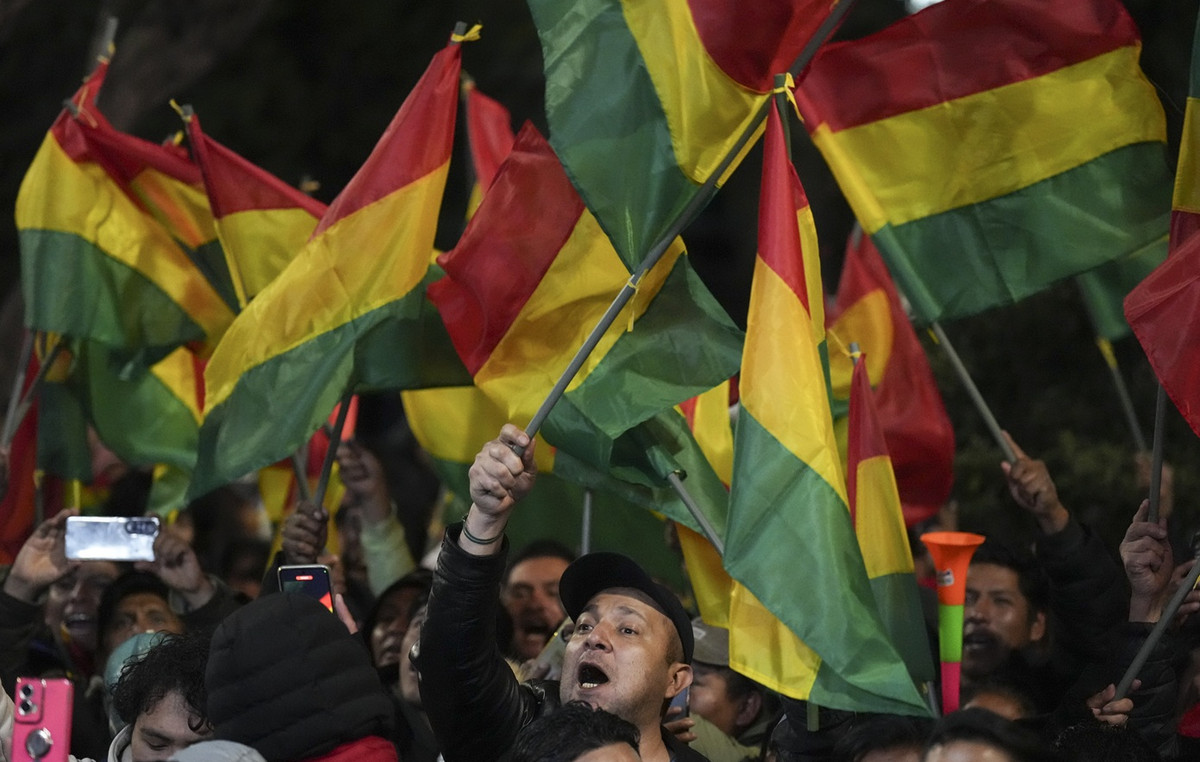The Public Ministry of São Paulo (MP-SP) will appeal the decision that released Leonardo da Vinci Alves de Lima.
The man is known as one of the heads of the First Command of the Capital (PCC) in São Paulo and was released after a sentence by Minister Sebastião Reis Junior, of the Superior Court of Justice (STJ).
Leonardo da Vinci was serving a sentence of 10 years, 7 months and 15 days in prison in the maximum security prison of Presidente Venceslau, in the interior of São Paulo, but has already been released, according to a letter from the minister published in the STJ system on Monday. fair (12).
The promoters heard by the CNN they saw the minister’s decision with concern and are therefore going to appeal to have the man accused of being a drug dealer returned to jail. Da Vinci was arrested with 2 kg of cocaine and, when approached by the police, he confessed to being part of the largest criminal faction in the country.
“He appears in several telephone interception conversations negotiating hundreds of kilos of cocaine for the faction, negotiating rifles. It is an extremely dangerous element. I disagree with that opinion and I received the news with a lot of strangeness and astonishment, to the point of revolt”, declared prosecutor Lincoln Gakyia, from São Paulo.
The prosecutor is known to be one of the faction’s main targets and was on the death threat list in the PCC plan discovered by the Federal Police in March of this year.
A CNN, the prosecutor in São Paulo Celeste Leite dos Santos said that there are nuances of the concrete case that would rule out that conclusion.
“This is because, in the narrative of v. judgment, it is concluded that there was not a ‘mere suspicion’ based on nervousness, but added to the fact that the author of the fact disrespected traffic laws, climbing on the sidewalk, which, in theory, would justify his personal approach. Not least: drug trafficking constitutes a serious offense to public health, with individual and collective victims,” he explained.
“The absence of a specific statute that regulates the rights of victims means that Criminal Law fails to exercise one of its most emblematic functions: preventing the commission of crimes”, added the prosecutor and president of the Instituto Pró-Vítima.
The release of Leonardo da Vinci was also the target of criticism from the police. “This interpretation of the STJ is cause for concern, which relativizes the scope of the well-founded suspicion, acquitting and giving freedom to highly dangerous criminals, as is the case of PCC boss Leonardo da Vinci Alves de Lima, found with two kilos of cocaine”, he declared. The CNN police chief Raquel Gallinati, director of the Association of Police Chiefs of Brazil (Adepol).
According to the researcher from São Paulo, “the police officer deals with behavioral analyzes on a daily basis”. For the record: police officer, student, teacher, judge, child — everyone perceives nervousness, whether this definition is subjective or not”.
The delegate also says that it is crucial that the STJ ministers consider ‘the reality of the streets’ and the experience of police officers when interpreting well-founded suspicion and other legal concepts related to public safety.
“We cannot allow the defense of individual rights to be used as an excuse to weaken the fight against crime and protect highly dangerous criminals. Balance and common sense are needed in this discussion”, reinforces the delegate.
understand the case
The STJ magistrate considered the approach of the military police in São Paulo to be illegal. Due to the occurrence, the military reported a “strange behavior by the defendant”, which caused suspicion in the team and motivated him to be approached.
“He was traveling with the silver motorcycle, when he came across a military police patrol, when he got on the sidewalk and stopped, showing his nervousness, which led to the approach. With Leonardo, there was BRL 1,010.00 and a cell phone, which, during the investigation, he tried to break and ran towards the alley, being, however, reached. Questioned informally, he admitted to the police that he belonged to the criminal faction and sold drugs, detailing that he accounted for trafficking and distributed drugs in three of the points of sale that were in the favela of Paraisópolis and, also, in neighborhoods in the ABC region”, says the STJ document when acquitting the defendant.
This is not the first time that the drug dealer has had a legal clash. In May 2020, the Justice of São Paulo determined the suspect’s house arrest, but the decision was reversed and he was kept in prison in the maximum security prison. Soon after, Da Vinci was sentenced to 10 years, 7 months and 15 days of imprisonment, for which he was imprisoned.
Leonardo da Vinci’s lawyer could not be reached by CNN to comment on the case. The STJ was sought to comment on the criticism, but has not yet responded to the report.
Source: CNN Brasil
I’m James Harper, a highly experienced and accomplished news writer for World Stock Market. I have been writing in the Politics section of the website for over five years, providing readers with up-to-date and insightful information about current events in politics. My work is widely read and respected by many industry professionals as well as laymen.







